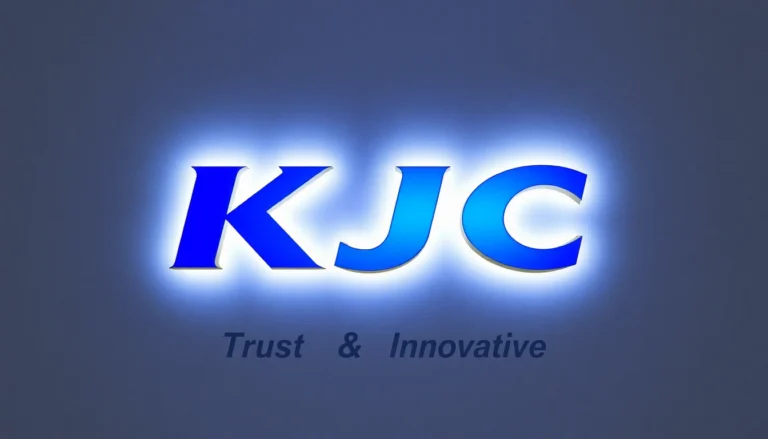
Understanding Container Rental: Basics and Benefits
Container rental has become an essential solution for a wide array of industries and individual needs across the UK, offering flexible, cost-effective, and secure options for storage, transportation, and site management. Whether you are managing a construction project, expanding your business storage capacity, or requiring temporary space for events, renting a container provides a practical alternative to traditional storage methods. For those new to the concept, understanding how container rental works and its advantages can help you make informed decisions to suit your specific requirements.
To explore a comprehensive range of options, visit Container rental providers who offer various solutions tailored to different industries and durations.
What is container rental and how does it work?
Container rental involves leasing standardized steel or composite containers for a specified period. These containers are designed to be durable, weather-resistant, and secure, making them suitable for storing goods, equipment, or personal belongings. The process typically begins with assessing your needs—what size, type, and rental duration fit your project or storage goals.
Once your requirements are clear, you select a provider offering a suitable container model. Many companies allow online ordering through streamlined platforms, where you can specify delivery locations, rental period, and any additional customization or accessories. Delivery logistics are arranged to ensure the container is transported directly to your site or location, where it is installed securely.
Economic rental options generally include both short-term and long-term leases, with provisions for extensions if project needs evolve. Rental prices are influenced by factors such as container size, type, rental duration, and additional features like security locks or climate control.
Key advantages of renting containers for business and construction
Opting for container rental offers several compelling benefits that make it an attractive choice for various projects and sectors:
- Flexibility: Rental agreements can be tailored to short or long-term needs, with options to extend or reduce based on project timelines.
- Cost-effective: Avoid the capital expenses associated with purchasing and maintaining containers. Rental costs are predictable, with transparent pricing models.
- High security: Containers are built with sturdy materials and equipped with secure locking mechanisms, protecting valuable goods from theft or vandalism.
- Portability: Movable containers enable easy relocation, making them ideal for dynamic projects that require adaptable storage solutions.
- Time savings: Immediate availability and quick deployment reduce construction or project downtime.
- Regulatory compliance: Containers meet safety and environmental standards, ensuring legal adherence during storage and transportation.
For example, construction companies benefit from on-site storage that can be moved as work progresses, while event organizers utilize containers for secure equipment storage before, during, and after events.
Common types of containers available for rent in the UK
The UK market offers a diverse range of container types designed to meet specific needs:
Standard Shipping Containers (20ft and 40ft)
These are the most common and versatile options, suitable for storage, transportation, or conversion projects. They are typically made of steel, offering robust protection against the elements and theft.
- 20ft containers: Ideal for small to medium-sized storage needs, portable, and easy to transport.
- 40ft containers: Suitable for large-scale storage, bulk materials, or converting into onsite offices or accommodations.
Specialized Container Types
- High-cube containers: Offering additional height (about 1 foot taller), suitable for bulky or voluminous goods.
- Refrigerated containers (reefer): Used for perishable goods that require temperature control.
- Open-side containers: Featuring wide doors for easier loading and unloading of large or awkward items.
- Underground and tunnel containers: Designed for concealed or secure storage options.
Manufacturers such as Portable Space, Titan Containers, and Sunbelt Rentals provide these variety options across the UK, enabling tailored solutions for specific industry demands.
Choosing the Right Container Rental Solution for Your Needs
Factors to consider: size, purpose, and duration of rental
Identifying the optimal container involves a detailed assessment of your project scope:
- Size: How much space do you need? Think in terms of cubic meters or square footage. For instance, a 20ft container provides approximately 33 cubic meters of capacity, sufficient for small business stock or tools.
- Purpose: Is the container for storage, transportation, or conversion? Different use cases require specific features, such as insulation, ventilation, or accessibility enhancements.
- Duration: Short-term rentals (weeks to months) may benefit from flexibility, while long-term projects might warrant discounted rates or purchasing options.
Assessing security features and durability of containers
Security is paramount, especially when storing valuable assets. Opt for containers with high-security padlock provisions, lock boxes, and anti-tamper features. Durability factors include corrosion resistance, structural integrity, and the ability to withstand UK weather conditions, such as heavy rain, wind, and frost.
Cost considerations and rental pricing breakdowns
Pricing varies based on container specifications, rental period, and delivery logistics. Typical costs for standard 20ft containers start around £50-£80 per week, with discounts available for long-term leases. Additional costs may include delivery, installation, and optional modifications. Comparing quotes from multiple providers can uncover the most competitive rates and favorable terms.
Top Providers and How to Rent a Container in the UK
Leading container rental companies and their offerings
Numerous providers serve the UK market, each with unique strengths:
- Portable Space: Offers a wide range of sizes and quick delivery across England, emphasizing flexible rental periods.
- Titan Containers: Known for secure, versatile storage solutions with transparent pricing and top-rated customer service.
- Sunbelt Rentals: Provides site-specific containers with security features designed for construction and industrial use.
- Algeco: Offers new and used containers, including specialized units for tailored industry needs.
- Storage on Site: Focuses on container sales and rentals in Southern England, with custom conversions available.
Step-by-step guide to renting a container online
- Assess your storage or transport needs, defining size, purpose, and duration.
- Research reputable providers, reading reviews and comparing offerings.
- Request quotes and clarify rental terms, including delivery, setup, and potential additional costs.
- Choose the provider offering the best value and terms for your project.
- Finalize your rental agreement — many providers facilitate seamless online booking.
- Coordinate delivery details, including site access and preparation.
- Complete the payment process and await container delivery.
Tips for securing the best deals and flexible rental terms
- Negotiate for long-term discounts if planning an extended rental.
- Ask about maintenance, repair, and replacement policies to avoid unexpected costs.
- Consider bundling services, such as delivery and setup, for better pricing.
- Plan ahead to prevent rush fees and secure preferred delivery windows.
Implementing and Managing Your Container Rental
Preparing your site for container delivery and setup
Ensure the designated site is accessible for delivery trucks, with suitable ground and clearance. Clear the area of debris and obstacles, and plan for secure anchoring if required. Communicate any special requirements to the provider regarding weight limits or site restrictions.
Maintenance, access, and security during rental period
Regularly inspect the container for signs of wear, corrosion, or damage. Maintain locks and security devices, and restrict access to authorized personnel. Consider installing additional security measures like CCTV or motion-activated lighting for enhanced protection.
Scaling your container solutions for ongoing needs
As your project or storage demands grow, adding more containers or upgrading to larger units can optimize workflow. Many providers offer flexible leasing options or container sales for ongoing expansion.
Optimizing Storage and Cost Efficiency with Container Rental
Best practices for maximizing space utilization
Align container placement strategically to facilitate easy access and maximize storage capacity. Use shelving, stacking (where structurally sound), and organize contents logically. Employ inventory management best practices to reduce clutter and improve retrieval times.
Innovative container conversions and customized solutions
Convert standard containers into offices, workshops, or retail units by adding insulation, electrical wiring, flooring, and windows. Customization ensures the container perfectly fits your functional needs, providing a permanent or semi-permanent solution without the costs of construction.
Monitoring rental performance and planning future rentals
Keep track of container utilization, maintenance costs, and operational efficiency. Data-driven decision-making ensures you optimize rental duration, reduce downtime, and plan for future storage or transportation needs effectively.





